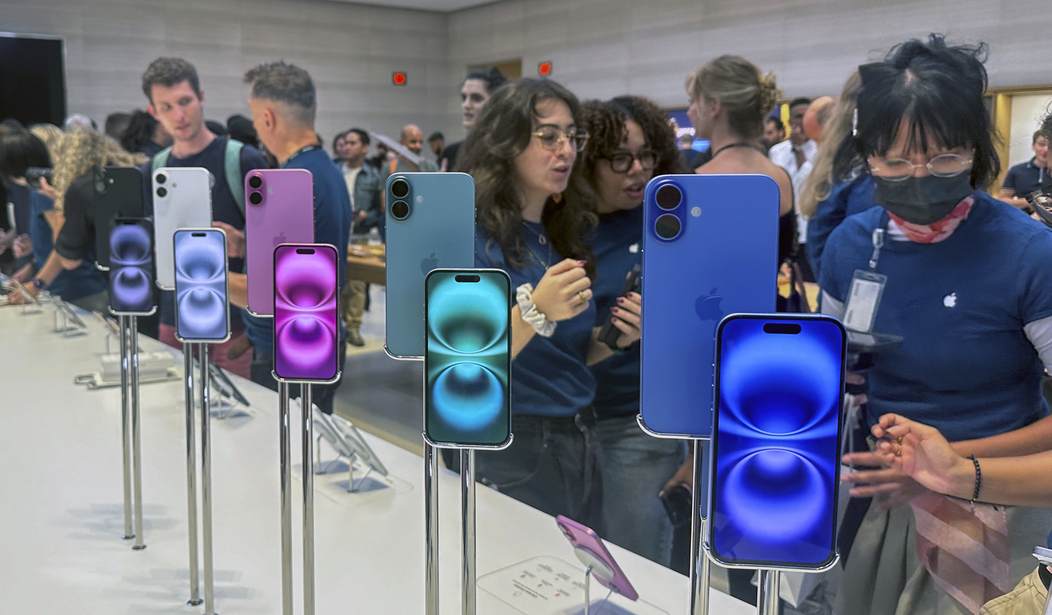Envy is an ugly thing -- one of the seven deadly sins.
Europeans have long been dripping with jealousy that American firms dominate the tech sector -- cellphones, search engines, social media platforms, artificial intelligence and robotics. Our "magnificent seven" tech companies -- including Google, Nvidia, Apple and Amazon -- saw massive stocks market gains in 2024. Meanwhile, Europe has flatlined.
One reason for this success: The United States innovates while Europe regulates. Instead of fixing their economies, the European Union bureaucrats want to kneecap America's tech success stories with lawsuits and regulatory barbed wire fences to keep American firms from competing on a level playing field.
Their first target was Google, with a rash of expensive antitrust lawsuits against search engines.
Even worse, the EU bureaucrats are waging war against Apple with the "Digital Markets Act" -- a law that requires "contestable and fair markets in the digital sector."
They are also demanding of Apple something called "interoperability," which absurdly requires Apple to hand over access to its private operating systems to its competitors and will require iPhones to offer competitors' applications. This makes as much sense as requiring McDonald's to offer Burger King fries with their Happy Meals.
The iPhone's amenities and apps are part of a package deal that have made these devices the most popular in the world, with billions of customers. This hardly sounds like monopolistic behavior. If people don't like Apple's apps, there are many other cellphone products (such as the Galaxy) made by Samsung, Google or other companies, including some in China, that consumers can turn to.
For all the talk about Apple's monopoly, it now controls slightly less than 20% of the global cellphone market.
What is especially dangerous about interoperability is what it means for security and privacy. If third parties are given unfettered access to the Apple platform, this shield of privacy will be pierced.
Apple warns that outsiders could "read on a user's device all of their messages and emails, see every phone call they make or receive, track every app that they use, scan all of their photos, look at their files and calendar events, log all of their passwords, and more."
But the biggest danger of these kinds of raids on successful companies that spend billions of dollars innovating is that the incentive to innovate at all is stifled -- in which case everyone loses. Sharing patented information with competitors in the name of "fairness" is a socialist idea that has rusted the Eurozone economy.
If Europe wants to get back in the tech game, EU bureaucrats should focus on what made these companies so successful in the first place -- and then try to create a public policy environment that will foster innovative companies that can compete and win -- rather than run to the courts for protection. Punishing the winners is a good way to keep producing losers.
In the meantime, let's hope the incoming Trump regulators at the Federal Trade Commission, Federal Communications Commission and Justice Department defend American companies against aggressive and hostile lawsuits to hobble our made-in-America companies. In other words, put America first, and don't let Europe take a bite out of our Apple.
Stephen Moore is a visiting fellow at the Heritage Foundation. He is also an economic advisor to the Trump campaign. His new book, coauthored with Arthur Laffer, is "The Trump Economic Miracle."







Join the conversation as a VIP Member